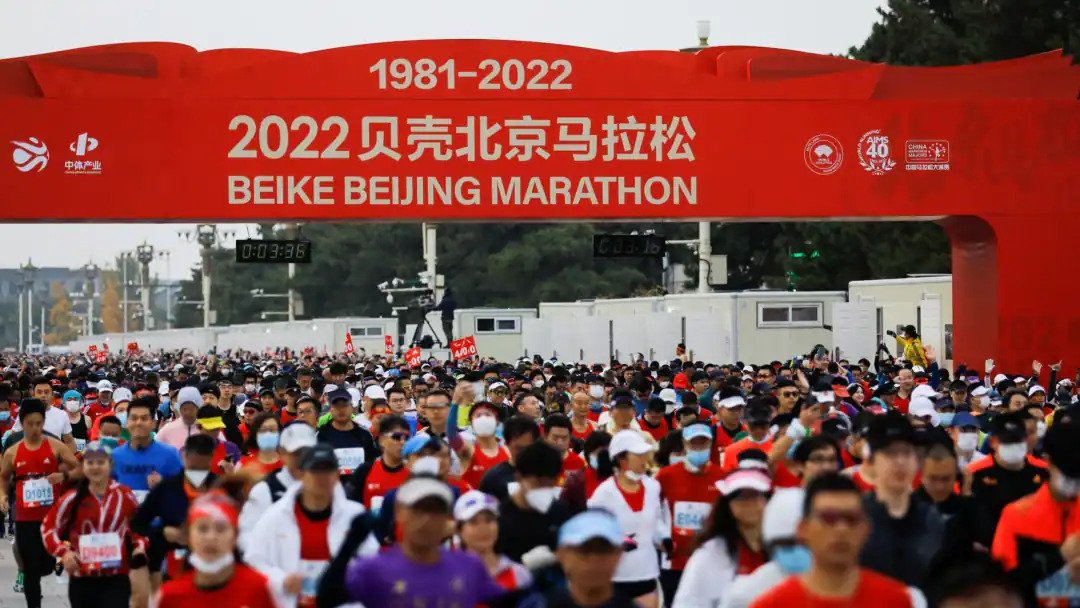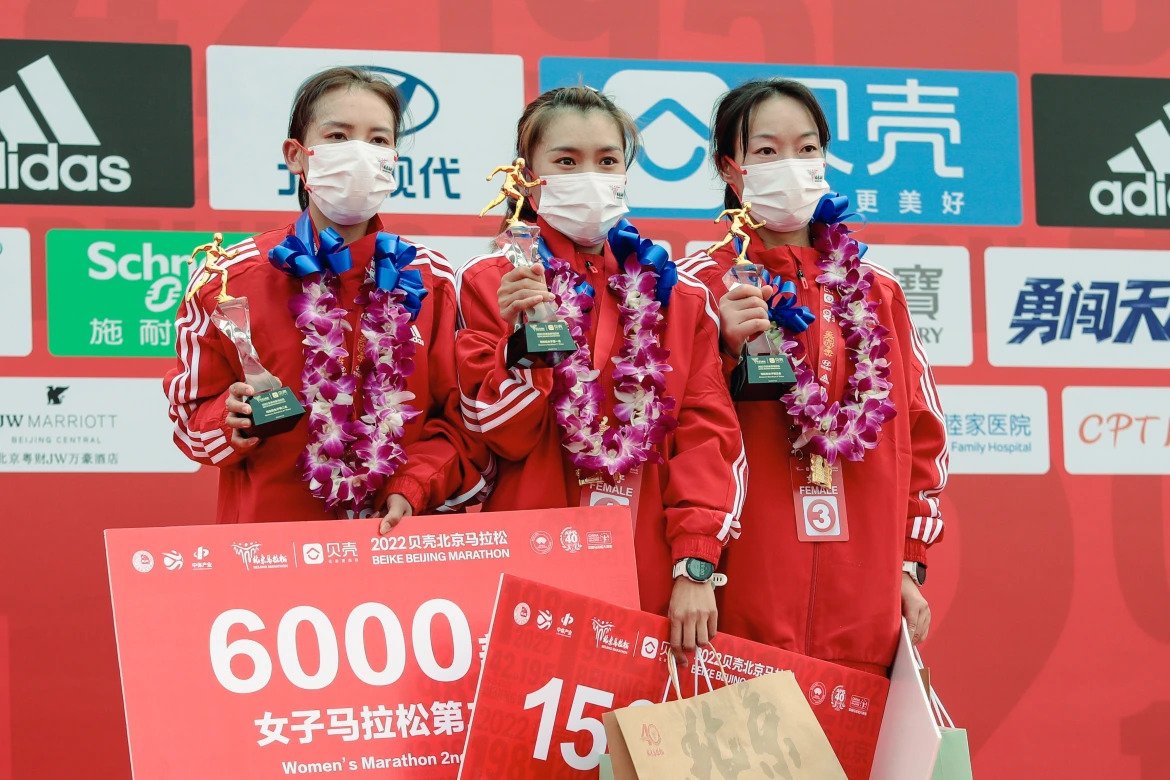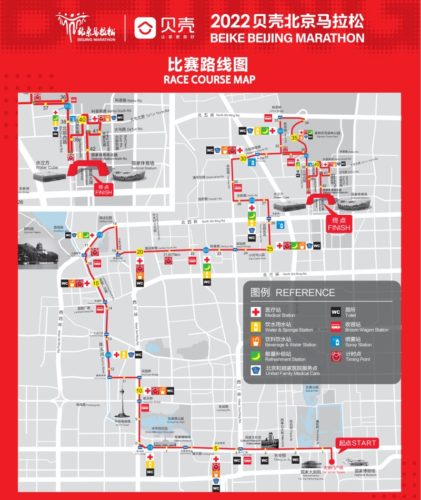Beijing Marathon returns amid COVID surge
Also making a return for the first time since the pandemic: Hong Kong Sevens.

The Beijing Marathon returned on Sunday after a two-year hiatus. The event drew approximately 30,000 runners, according to state media, this despite the fact that the country had just hit a six-month high in new COVID cases (3,871 on Thursday), with several community lockdowns being enacted in Beijing.
The race, starting in Tiananmen Square and winding north to Olympic Park, was restricted to Beijing residents, though some professional runners from other parts of the country were invited to take part. The winner of the men’s race was Anubaike Kuwan from Xinjiang, who clocked in at 2:14:34, while the unseeded Xia Yuyu of Tsinghua University claimed the women’s title in 2:28:57.
For the runners, the COVID restrictions were surprisingly relaxed. In the build-up to the event, organizers said runners would not be required to wear masks during the race (some still chose to do so), though they had to show proof they had been in Beijing for the previous seven days, with all the requisite PCR tests.
Those hopeful that the marathon is in some way a signifier of sports returning to normality in China should temper their expectations. While runners were battling their way through air pollution — with PM2.5 levels over 150 — the China Athletics Association announced that the 2023 World Athletics Relays in Guangzhou had been postponed until 2025.

~
Hong Kong Sevens returns in front of 30,000 fans
Hong Kong Sevens also returned this past weekend, the first time since 2019. As with on the mainland, Hong Kong has seen major sporting events canceled or held in lifeless, empty stadiums these past three years.
The return of Sevens was a highlight in Hong Kong’s sporting calendar, with just under 30,000 fans present in Hong Kong Stadium. The local government restricted capacity to 85% and didn’t allow food sales, though alcohol was available. Spectators were also expected to wear masks in the stands, though many ignored this requirement.
In past years, Hong Kong Sevens has been a destination event for rugby fans around the world. In 2019, about half of the spectators came from overseas, according to Reuters, contributing mightily to the city’s economy: roughly HK$400 million ($50 million).
In contrast, this year saw most tickets sold to a domestic crowd, with Hong Kong still maintaining awkward travel rules that put off many rugby aficionados from taking the once-a-year pilgrimage. (Hong Kong recently eased overseas travel restrictions somewhat, but a three-day home quarantine is still required.)
The finals was an exciting affair with a stunning ending, seeing Australia defeat Fiji 20-17 with a last-minute try. This was Australia’s first Hong Kong Sevens win in 34 years, while Fiji had won the previous five editions of the tournament.
https://www.youtube.com/watch?v=oqRBoCeSvFA
Hosts Hong Kong had a disappointing tournament, losing every game.
~
China can “become world’s biggest football nation,” says Patrice Evra (Xinhua)
‘Moral failure’: Mystery of Chinese player Peng Shuai shames tennis (News.com.au)
Tottenham urged to ditch Chinese main sponsor AIA and ‘show support for human rights and freedom’ (Evening Standard)
The China Sports Column runs every week.






